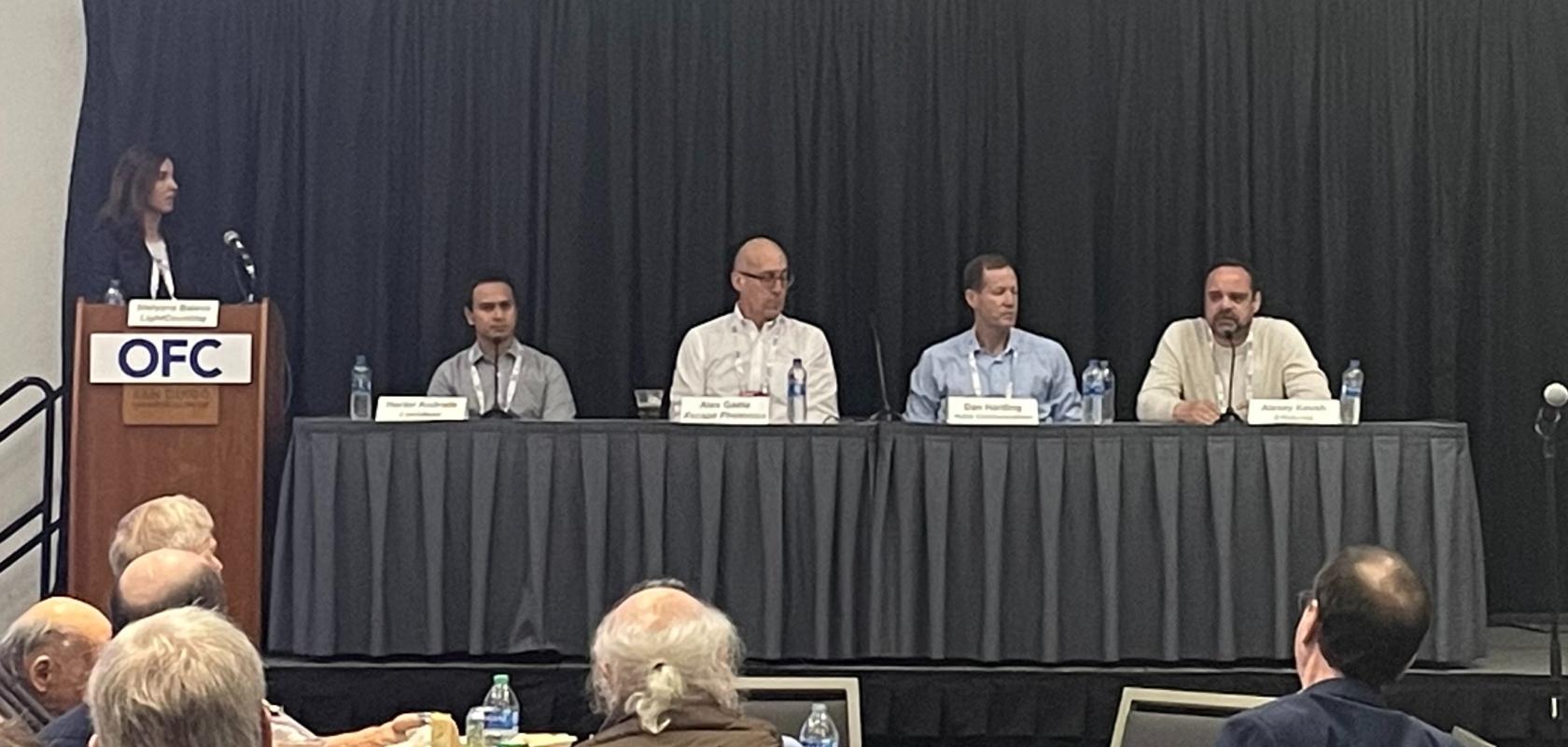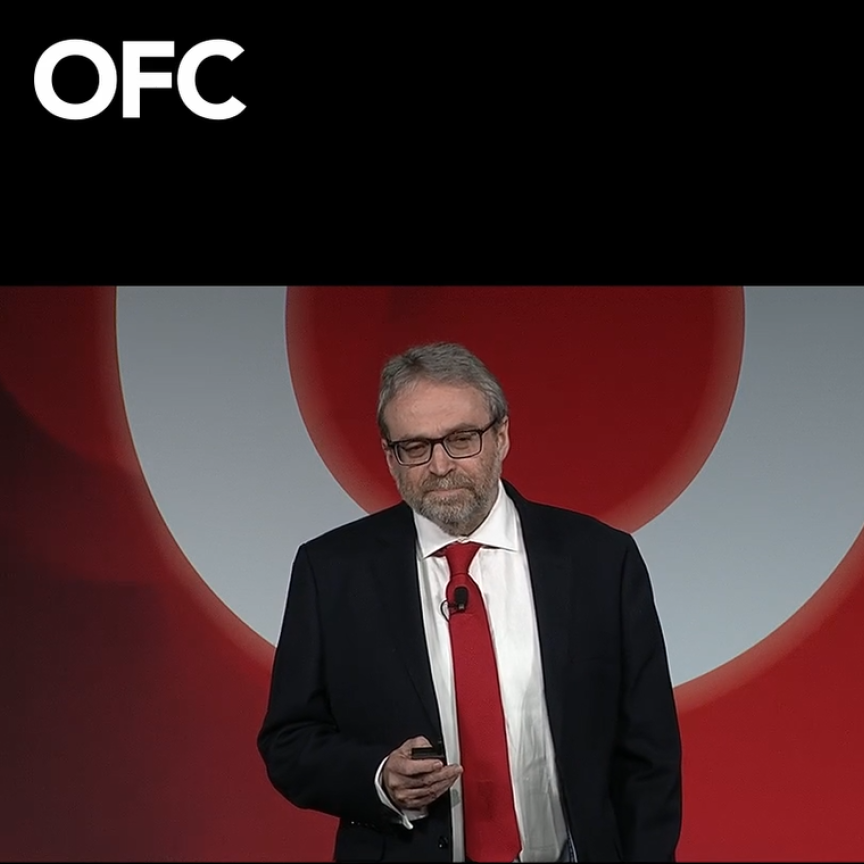The “Hot start-ups of 2023” panel featured founders of four optical communications companies at various stages of their journey.
Lucidean makes electronic and photonic integrated circuits for energy-efficient high-speed fibre-optic interconnect solutions. The company was spun out of UC Santa Barbara with the aim of delivering coherent with a low cost and low power line to an initial target market of those companies deploying optical switch networks.
Hector Andrade, Co-founder and Lead Engineer at Lucidean said of the challenges faced by start-ups in optical communications: “I think VCs and investors in general are hesitant to fund really long-term projects, because we're all doing semiconductor electronics, photonics, these all require several years of development. So I think that hesitancy from the investor community is something that could be addressed.”
Xscape Photonics uses photonics to realise solutions for the next generation of artificial intelligence, machine learning and simulation hardware. The business was founded in 2022. The founders are all professors and researchers in photonics at Columbia University.
Speaking of the hurdles faced by start-ups, Alexander Gaeta, Founder and CEO said: “To build an interconnect we need photonics but we also need electronics which can be prohibitively expensive. If you really want to build a full interconnect, you need a substantial amount of funding for that kind of hardware. To decide to build a product without knowing for sure that a customer will buy is a huge risk for a start-up, or for larger companies that can take those risks first. Investing that kind of money, not knowing absolutely for sure that a customer is there to buy is one of the things that is, I think, the biggest challenge.”
Nubis Communications was founded in 2020 and has subsequently raised more than $40m to fully fund the development of its first product to volume production. The company aims to create optics with more dense, scalable and lower power than existing solutions and recently released its first commercial product, the XT1600 optical engine.
Dan Harding, CEO at Nubis Communications shared his view: “One big challenge for start-ups in the optical space is the funding. It is expensive to build optical products, not just for the optical, I think any semiconductor. I think we were fortunate to have some good funding, but in general, that's the biggest challenge. Developments such as the Chips Act have indicated some openness to funding startups but it will take time to allocate funding.”
Alfalume was also represented in the panel by CEO Alexey Koush. The company, in partnership with German partner company Innolume, was set up to develop and bring to market quantum-dot laser solutions for datacom, lidar and other applications. Together the two companies already have more than 100 customers worldwide. The company recently announced sample availability of its O-band high power InAs/GaAs Quantum Dot DFB lasers. Funding has been less of an issue for the business, thanks to its partnership with Innolume.


